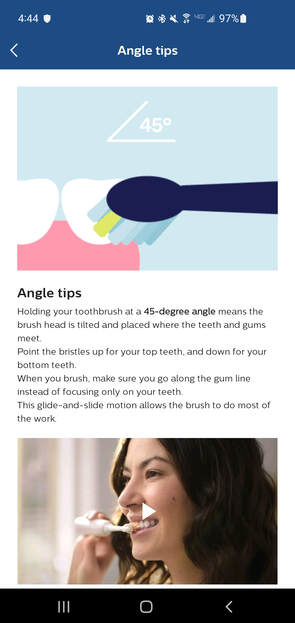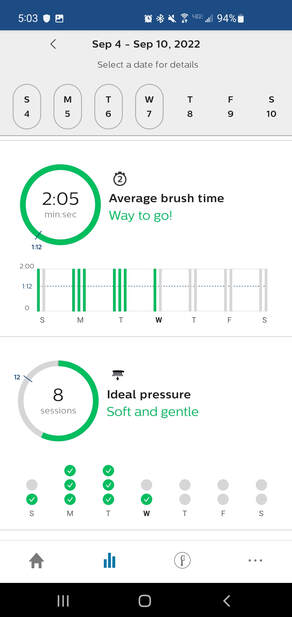 Jennifer Murphy, Ph.D., Founder & CEO (Taylor's Version) Jennifer Murphy, Ph.D., Founder & CEO (Taylor's Version)
Unless you either live under a rock or don’t have a relative/friend/boss who’s a Swiftie, you know that Taylor Swift concert tickets went on sale this week. You probably also know it was a catastrophe, with the blood and tears of millions of Swifties on Ticketmaster’s hands. It was enough to divert an entire news cycle away from Elon Musk. I’m here to tell you how in the future, this sort of thing might not happen.
 @repenthusiasmts / Via Twitter: @repenthusiasmts @repenthusiasmts / Via Twitter: @repenthusiasmts
Here’s what happened: Prior to the presale, Swifties registered as “Verified Fans” through a partnership between Ticketmaster and Taylor’s management team, Taylor Nation. From Ticketmaster’s reports, over 4 million fans signed up. The night before the presale, 1.5 million of them were notified by text and email that they won the presale lottery and were given access codes to buy tickets the next day. If you bought merchandise from the Taylor Swift store using the same email address as your Ticketmaster account, this helped your chances. I am both simultaneously proud and embarrassed to say that I have dropped enough money on that website to score a presale code.
The events of the following morning will live forever as one of the darkest of days in the annals of Swiftie history. Over the course of the morning, 1.5 million fans tried to buy tickets simultaneously – along with 12.5 million other people…and resale bots. (If you want to learn about how these bots work, this is a good primer.) The site crashed in spectacular fashion, codes did not work, and many irate Swifties did not score tickets. Moments later, ticket resale sites like StubHub and Vividseats immediately showed plenty of inventory – marked up to $30,000 a ticket in some places. The whole point of fan verification was to prevent something like this from happening. So, what went wrong?
This is not a post about that. This is a post about how it could have gone. Non-fungible tokens, or NFTs, have a bad rep in some circles because they are often associated with “tech bro” culture and extremely ugly AI-generated cartoon apes. However, they are useful for situations in which you want to tie a digital asset to its owner. If concert tickets are issued on NFTs, the organizer would have a record of the owner of the ticket on a blockchain, and more importantly, would know when that ticket is sold to someone else and how much it sold for. Keeping these records could limit price gouging, scalping, and ticket fraud. Because the ticket resides on a blockchain, the organizer could set resale cost limits and conditions.  my1galaxy via redbubble my1galaxy via redbubble
There are other benefits to using NFTs for ticket sales. Because this technology moves quickly and efficiently, it may be less likely to crash a website. Artists could attach digital collectibles to tickets as souvenirs of the show. Tickets are potentially more securely stored digitally using ticket wallets tied to a single device. And paying for tickets could be more seamless, too. Ticketmaster sees the value, too, and has partnered with blockchain providers for other kinds of events.
It'll be a while before the world buys Taylor Swift tickets on blockchain, but there’s a good chance it’ll be better than not being able to buy Taylor Swift tickets at all. I, for one, am ready for it.
1 Comment
 Dr. Eric Sikorski, Director of Programs & Research Dr. Eric Sikorski, Director of Programs & Research I have been brushing my teeth for 40 years, which is approximately 1,000 hours of practice. Not exactly the 10,000 hours to achieve mastery, according to K. Anders Ericsson, although seemingly sufficient for a menial task. I didn’t think much about my toothbrushing proficiency, but if pressed, I would have said it’s “good enough.” However, the last few trips to the dentist indicated otherwise. Nothing major, but clear signs that my technique was flawed. So, I had a choice to either continue to accept good enough or try to improve my performance. Yes, toothbrushing is a mundane task, but why not finally listen to the expert and do it better? I am an underperforming teeth brusher not because I’m incapable of performing the task but because I formed unproductive habits and lacked the motivation and tools to overcome those habits. I would buy an inexpensive toothbrush and then mindlessly move it around in my mouth for some reasonable amount of time twice a day. As a major step toward improvement, I bought an electric toothbrush (spurred on by my dentist, of course). At QIC, we know that in order to push yourself to the next level, you require insight into your performance. Not only do you need enough data, you need the right data. It must be presented to you in a way that’s easy for you to understand at a glance, and it must be coupled with feedback. Knowing you’re not performing at your peak level isn’t enough – you need to know what to do to fix it! I was pleased to see these features in the companion app to my toothbrush. The brush itself gives you brushing guidance through a timing feature and sensor. The downloadable app provides insights into your brushing habits, and importantly, gives you specific strategies you can use to improve. Feedback on brushing frequency, average duration, and performance is displayed after each session, along with corrective actions such as “slow down.” Taken together, this Cadillac of toothbrushes is designed to break unproductive habits, model and maintain the correct behaviors, assess performance, and provide feedback. From a human factors and training perspective, it’s quite impressive! Whether government or private industry, our customers are regularly faced with the choice of seeking opportunities for improvement over accepting good enough. Not about teeth brushing, necessarily, but for job tasks on which they are trained, practiced, and may not have to think much about. The most elite performers are motivated to improve even on the tasks that have become mundane. Despite the desire to constantly improve, how to improve may not always be clear to them. We, as human factors and training professionals, know how. Analyzing job tasks allows us to understand the negative habits, well-designed training and performance support can help break those habits, active participation and demonstrable results can motivate, and assessment and proper feedback can maintain performance. The fighter pilot, CEO, Navy SEAL, etc. choose to shun the good enough, whether in the mundane or extraordinary. It is part of what makes them great, and we can help focus that motivation to make them even greater. In the meantime, let’s start with brushing our teeth… properly.
|
AuthorsThese posts are written or shared by QIC team members. We find this stuff interesting, exciting, and totally awesome! We hope you do too! Categories
All
Archives
June 2024
|



 RSS Feed
RSS Feed